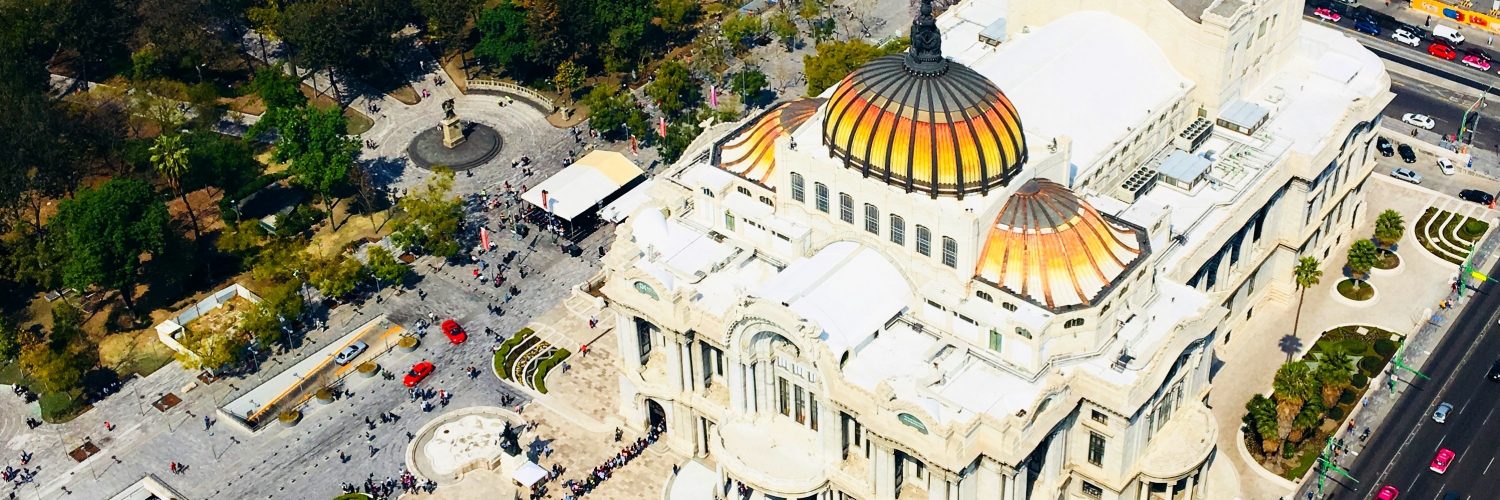With six months under his belt, Mexico’s new president continues to enjoy popularity with approval ratings ranging from 67 to 88 percent, depending on the pollster.
President Andrés Manuel López Obrador – known as AMLO – was swept into office on promises of massive social and economic reform.
His six year development plan is a grandiose vision: free internet, a “Mayan Train” to link the Atlantic and Pacific coasts, 100 new universities, double assistance for the elderly, revived fortunes for the state-run oil company, bolstering baseball, and on and on.
As the new administration feels its way forward, more than 50 percent of Mexican citizens believe he is “starting” to make a difference in improving the economic situation, according to a recent poll by national polling company Buendía y Laredo.
But ultimatums from President Donald Trump may prove to be one of his biggest challenges.
Trump ultimatums
When López Obrador took office, Mexico was under punishing tariffs imposed by Trump last summer. Trump had imposed metal tariffs of 10 and 25 percent. He removed them a month ago. But within days, he threatened to add up to 25 percent taxes on all Mexican goods June 10 if Mexico did not stop the “invasion” of migrant cartels.
The announcement came as Mexico was in the throes of passing a new free trade agreement, an update of the 25-year-old NAFTA, called the United States Mexico Canada Agreement (USMCA).
With little more than a week to meet Trump’s deadline, López Obrador agreed to add 6,000 more troops in Mexico’s southern border regions, and allow migrants to stay in Mexico as they wait for America to decide their asylum requests.
That appeased Trump – for now. If Mexico cannot stem the flow to America’s borders, Trump stated he would follow through with the new tariffs on American importers. That could hurt the chances for the USMCA, industry leaders worry. Officials in border states, in particular, are concerned.
In Arizona, state and business leaders have spent decades forging a strong trade relationship with Mexico. Today, Mexico is its largest trading partner with cross border trade totaling $16.6 billion.
New trade taxes would raise the prices of not only the “avocados in our guacamole and the tequila in our margaritas…it could eliminate more than 400,000 jobs,” U.S. Rep. Sylvia Garcia of Texas said in a public hearing this week.
For Mexico, it would be a crushing blow. Its economy relies heavily on selling goods to the U.S.
Trade fairly stable, for now
For businesses that engage in cross border trade, the USMCA is their biggest concern, said Luis Ramirez, president and CEO of Ramirez Advisors Inter-National, LLC, in Phoenix, that specializes in cross border initiatives and governmental affairs.
There also is uncertainty for companies on how to qualify for programs and tax incentives under the new shifting regime, he said.
“I think there is a learning curve for any new administration,” Ramirez said. “I think they’re still discovering governance in not easy, that it takes a true commitment and experts in their field.”
First six months
While the rocky road to free trade continues, here are some of the key takeaways from AMLO’s first six months in office:
Baseball López Obrador committed to spending $110 million to incentivize his favorite game. Last month, Major League Baseball and USA Baseball announced plans to help, launching a Fun At Bat program that will supply more than 1.3 million elementary students across Mexico with baseballs, softballs and bats for P.E. programs.
Labor reforms As part of the USMCA deal, Mexico’s congress passed new labor reforms April 29 that provide the right to organize, protections against discrimination in the workplace, new arbitration processes, and more. AMLO already increased the minimum wage 16.2 percent in December, Mexico’s largest increase in 23 years.
Energy, oil and gas López Obrador has increased funding to produce more electricity, gasoline and oil. His plan is to spend billions of dollars on the state-owned energy companies including the debt ridden Pemex to help make Mexico more self-sufficient and create thousands of new jobs.
Fuel theft crackdown López Obrador initiated a program to reduce the staggering losses from widespread theft of oil and energy. Theft from oil pipelines alone is estimated to cost the country $3 billion a year.
New airport After taking office, the president shut down the partially-built $13 billion airport project at Texcoco, stating it was riddled with corruption and too expensive. In its place, he launched work to upgrade the Santa Lucía military base for an international airport for Mexico City.
New security agency In a move approved by the Mexican congress, the president created the National Guard to crackdown on crime related to drug cartels.
















Add comment